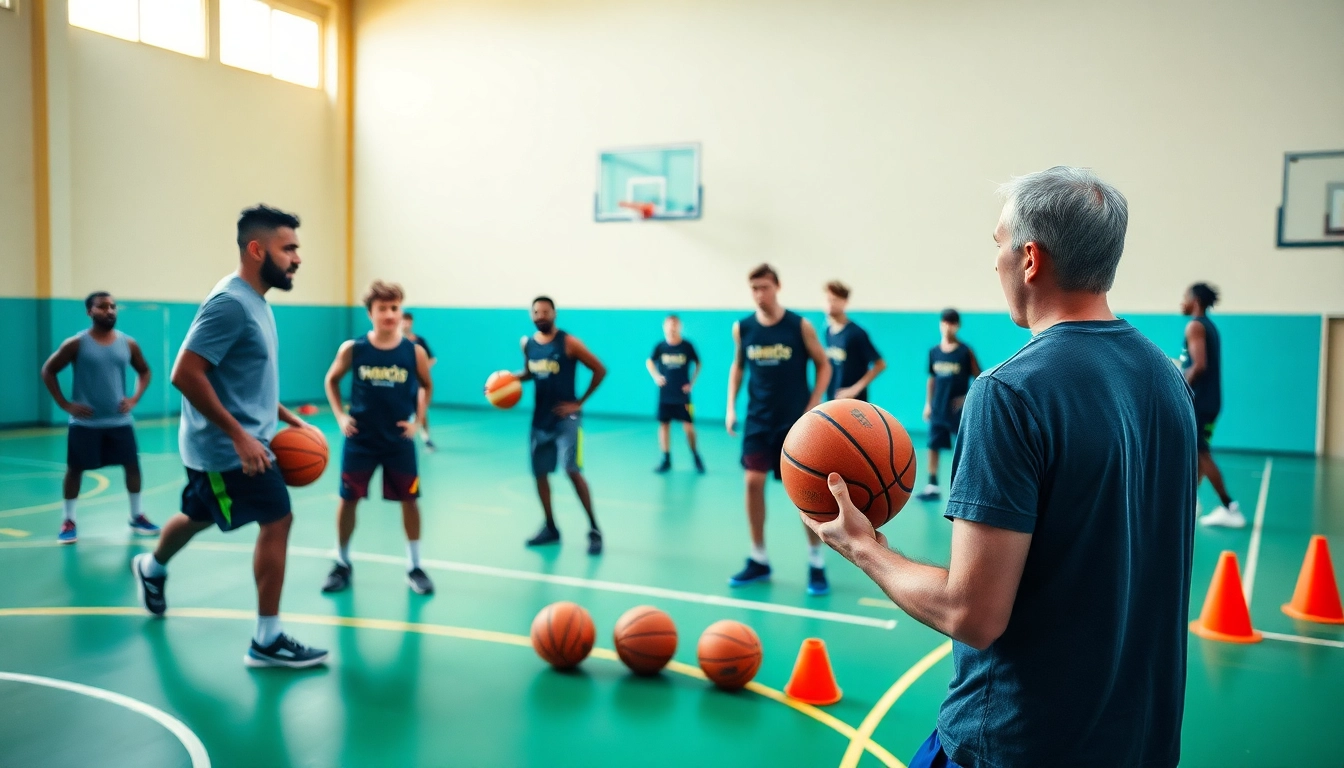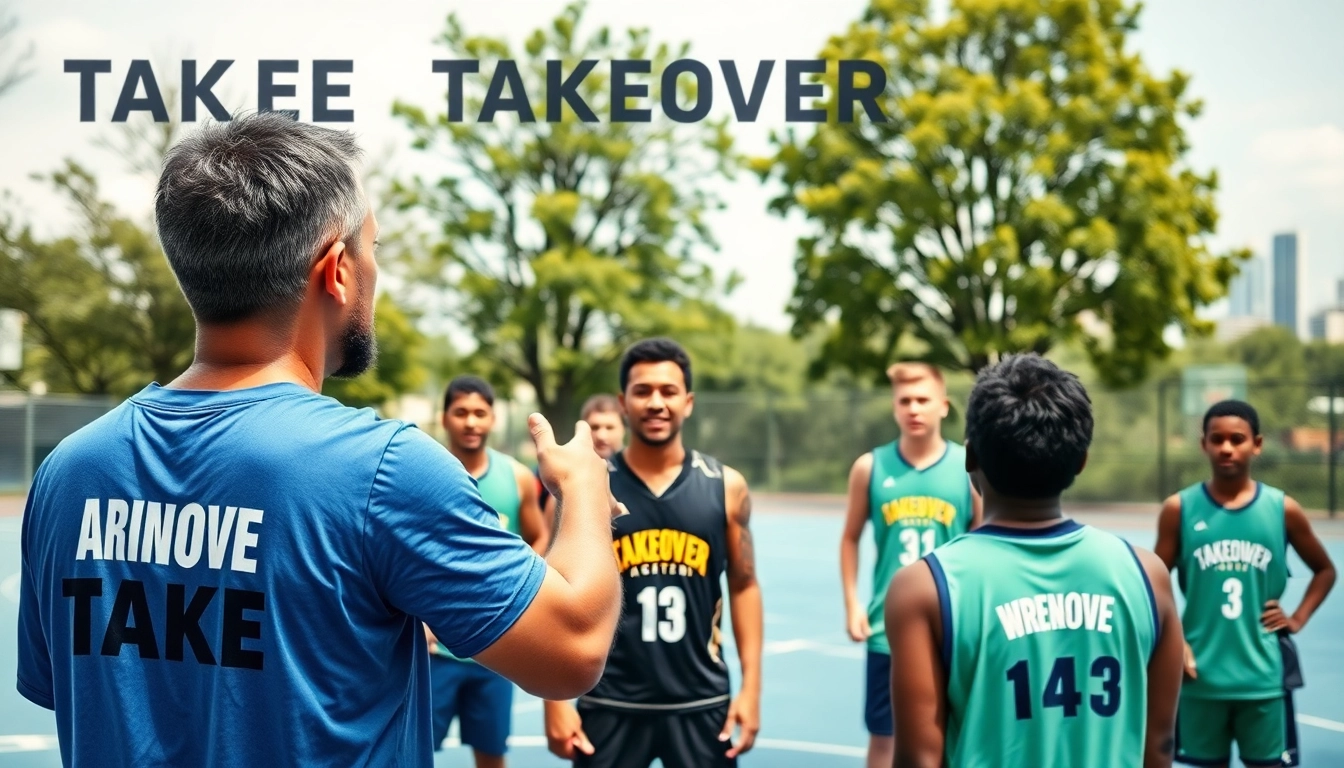Understanding Basketball Training Programs Near Me
Whether you’re a budding athlete looking to sharpen your skills or a seasoned player aiming for that competitive edge, finding suitable basketball training programs near me can transform your game. These programs offer specialized training tailored to individual needs, helping players at every level, from beginners to advanced competitors, to enhance their performance on the court. This article delves into what you can expect from local basketball training programs, the types available, and how to choose the right one for your unique objectives.
What to Expect from Local Basketball Training
Local basketball training programs provide a structured environment for athletes to develop their skills. Expect a blend of skill training, drills, team strategies, and conditioning designed to improve both physical and mental aspects of basketball. Coaches often focus on individualized feedback, allowing players to work on specific areas for improvement, such as shooting technique, ball handling, defense strategies, and game scenarios.
The training environment typically includes both individual and team workouts. As players refine their personal skills, they will also learn to work effectively within a team context, understanding roles and dynamics that influence overall team performance. Instructors are usually experienced coaches or former players who bring a wealth of knowledge and expertise, creating an atmosphere conducive to learning and growth.
Types of Training Programs Available
Basketball training programs vary widely, catering to different types of training needs and styles. Some common types include:
- Skill Development Clinics: Focused on specific skills such as shooting or dribbling, these clinics offer intensive training over short periods.
- Camps: Often organized during school breaks, these immersive camps provide comprehensive training experiences covering all facets of the game.
- Private Coaching: Tailored one-on-one coaching for focused improvement, ideal for players wanting personal attention on specific areas.
- Team Training Programs: Designed for teams preparing for competitions, focusing on synergy, strategies, and teamwork.
- Conditioning and Fitness Programs: Emphasizing the physical side of basketball, these sessions often improve endurance, strength, and agility essential for competitive play.
How to Choose the Right Program for Your Needs
Choosing the right basketball training program involves assessing several factors:
- Goals: Define what you want to achieve – skill enhancement, fitness improvement, or competitive preparation.
- Age and Skill Level: Ensure the program suits your current skill level and is age-appropriate.
- Coaching Quality: Research the qualifications and experience of the coaches involved.
- Location and Facilities: Consider the convenience of the program’s location and the quality of facilities available.
- Reviews and Testimonials: Look for feedback from former participants to gauge the effectiveness of the training offered.
Benefits of Participating in Basketball Training
Engaging in basketball training offers numerous benefits that extend beyond the court. Here’s a closer look at how structured training can enhance your basketball experience.
Skill Development and Improvement
Through focused practice and expert coaching, basketball training hones individual skills. Players learn the nuances of shooting, passing, dribbling, and defensive strategies. Tailored drills are designed to target weak areas, ensuring that each participant improves significantly over time. Moreover, training environments provide athletes the opportunity to practice under pressure, simulating real-game situations where critical skills are put to the test.
Building Teamwork and Communication
Basketball is fundamentally a team sport, and effective communication and teamwork are crucial for success. Training programs emphasize the importance of working well with teammates, building cohesion, and developing non-verbal communication skills. By participating in team drills and game simulations, athletes learn to trust each other, understand various roles, and create tactical plays that leverage individual strengths.
Physical Fitness and Health Benefits
Regular basketball training enhances physical health, improving cardiovascular fitness, strength, coordination, and agility. Engaging in basketball workouts can aid in weight management and contributes to overall well-being, reducing risks associated with sedentary lifestyles. The sport also emphasizes mental health benefits; participating in structured physical activity can decrease stress and anxiety, fostering a positive mind-state.
Finding Quality Basketball Training Programs Near Me
Once you understand the structure and benefits of basketball training programs, the next step is locating a quality program near you. Here are some actionable insights to assist you in this process.
Researching Local Academies and Coaches
Start broad by exploring local sports academies through online searches, community boards, and social media platforms. Look for organizations with a solid reputation, extensive experience, and a commitment to developing young athletes. Investigate the credentials of the coaching staff to ensure they have the appropriate background in coaching basketball at various levels.
Reading Testimonials and Success Stories
Testimonials from former or current students provide valuable insight into the effectiveness of a training program. Check the website or social media pages of training academies to locate success stories that resonate with your needs. Look for programs that showcase before-and-after evaluations, as these can give you an idea of what to expect in terms of progress.
Assessing Training Facilities and Equipment
The quality of training facilities can significantly impact the overall training experience. Visit potential training venues to examine the courts, equipment, and additional facilities such as gyms or recovery areas. Ensure the environment is safe and conducive to training, with ample space for various drills and exercises.
Cost Considerations for Basketball Training Programs
Training costs can vary significantly depending on the type of program, duration, and facility. Understanding the pricing structures can help you make informed decisions.
Understanding Pricing Structures
Basketball training programs may operate on different pricing models, such as pay-per-session, membership fees, or package deals covering multiple sessions. Take the time to compare the offerings of various programs to determine what fits your budget and needs. Remember, the most expensive option isn’t necessarily the best; focus on what you will receive in return for your investment.
Comparing Programs to Maximize Value
When assessing price versus value, compile a list of features and benefits of the programs under consideration. Compare not just the cost, but what each program offers in terms of coaching quality, facilities, additional resources, and overall training environment. This comparison can help you identify which program provides the best potential for development based on your goals.
Scholarships and Financial Aid Options
Many training academies offer scholarships or financial aid to support talented athletes who may not otherwise afford the costs. Inquire about available programs when researching local training options; some institutions may have partnerships with local organizations that provide financial assistance.
Measuring Success in Basketball Training
Determining the effectiveness of your basketball training program can be subjective, but there are specific metrics and indicators you can track.
Setting & Tracking Personal Goals
Setting personal goals, such as improving shooting percentage or mastering a new dribbling technique, can guide your training focus. Keep a training journal to track your progress, noting improvements over time and the effectiveness of different drills or coaching strategies engaged in during sessions.
Recognizing Skill Progress and Achievement
As you progress through your training regime, it’s essential to recognize improvements in your performance. Regularly compare your skills against previous benchmarks you established. Coaches can help identify areas of growth as well, providing constructive feedback that champions continuous improvement.
Feedback from Coaches and Peer Assessments
Coaches play a pivotal role in gauging your development throughout the training process. Request regular feedback on your performance and areas requiring more focus. Additionally, engaging in peer assessments can illuminate other perspectives and encourage teammate interaction, allowing for collective growth.



